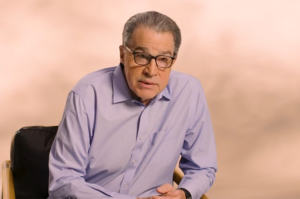Former Egyptian President Mubarak Back in Court
Egypt’s former President Hosni Mubarak resumes his trial Wednesday in Cairo after nearly a three-month hiatus.
Mubarak is being charged with aiding in the murder of nearly 840 protesters during the Arab Spring uprisings, which began in late January and resulted in the president stepping down from power on Feb. 11.
Mubarak’s two sons, the country’s former interior minister Habib El Adly, and six of his aides also face charges related to the February protests, which include corruption and the intentional killing of protesters.
The ousted president’s court case originally commenced in August, but the process was halted when lawyers representing the families of the deceased protesters requested that three judges in the trial be replaced, arguing that they did not complete extensive questioning of Field Marshal Mohamed Hussein Tantawi. Their requests were denied.
“He did not allow many of them into the court and did not give them enough time to ask their questions," attorney Khaled Abu Bakr said, referring to Judge Ahmed Refaat, who continues to preside over the case.
Mubarak showed up to the Cairo courthouse Wednesday lying on a hospital gurney, covering his face with his arms and shrouded by policemen. Mubarak’s health has greatly deteriorated over the past month as doctors say the former dictator is suffering heart problems.
Although Mubarak was considered tyrannical by many Egyptian citizens, he also maintained a steady following through his 30-year rule. According to CNN, Mubarak supporters stood outside of the courthouse Wednesday waving supportive signs and chanting “Not guilty! Not guilty!”
Previous questioning in the case suggests that Mubarak will be found not guilty, because most eyewitness reports have argued that Mubarak did not directly order soldiers to fire live rounds into crowds of protesters. On the other hand, Mubarak could receive the death penalty for his alleged transgressions, according to observers.
Mubarak ruled Egypt with what many call a bloody iron fist from 1981 to 2011. He maintained his power for multiple decades via rigged ballots, and he was eventually ousted by Egyptian citizens as a result of the Arab Spring uprisings, in which thousands of protesters gathered in Tahrir Square and other major cities to call for a democratic government.



























